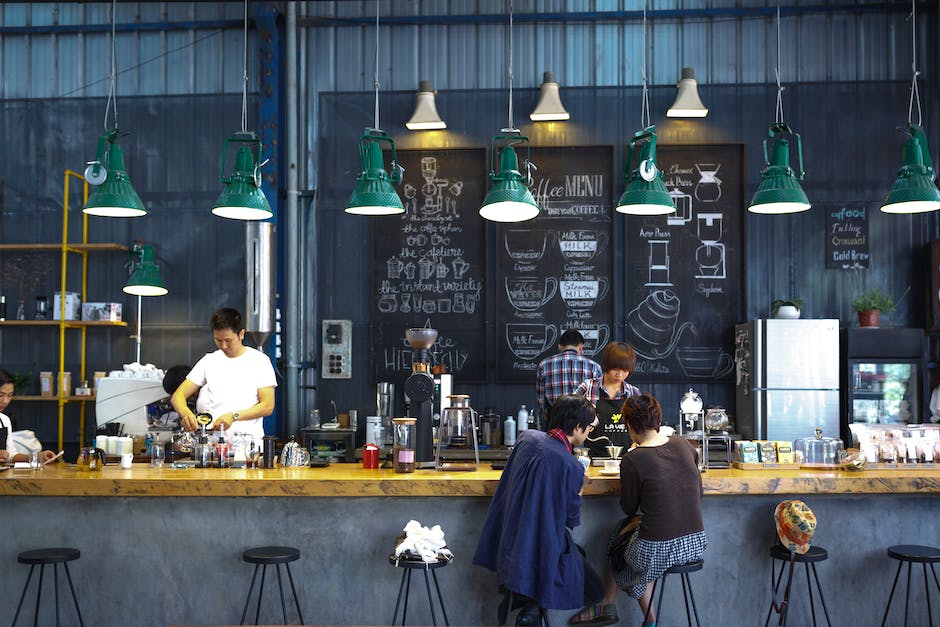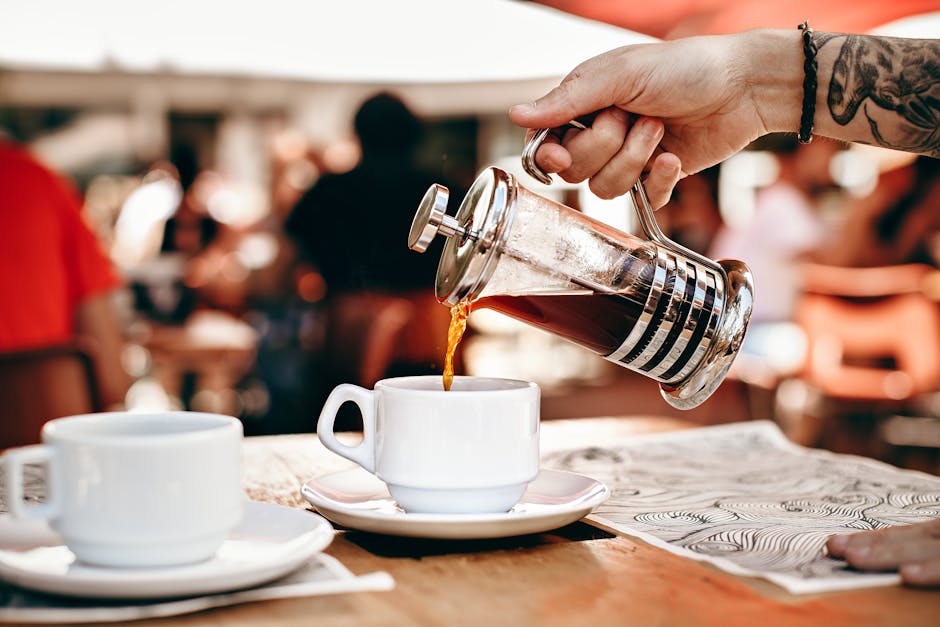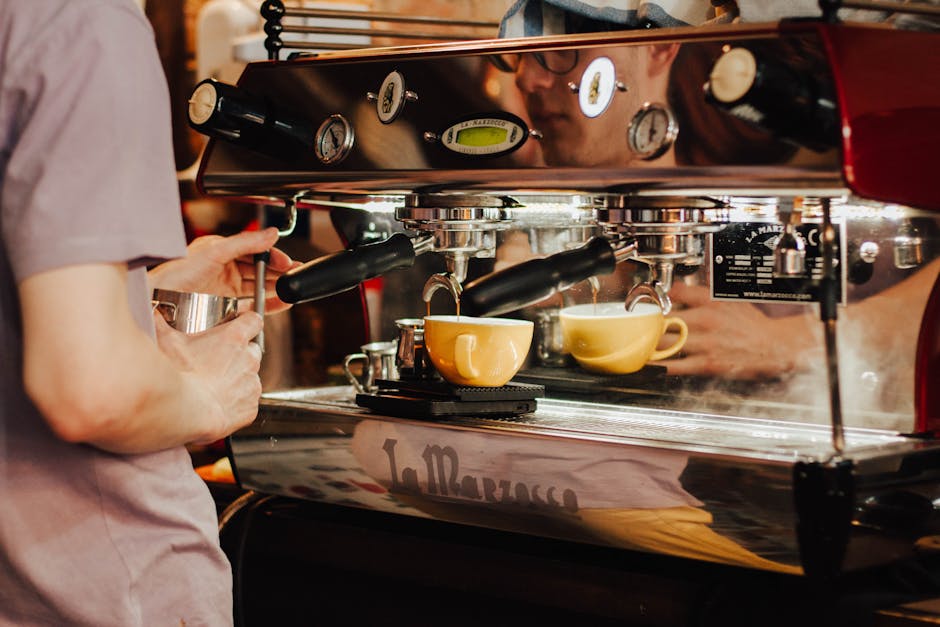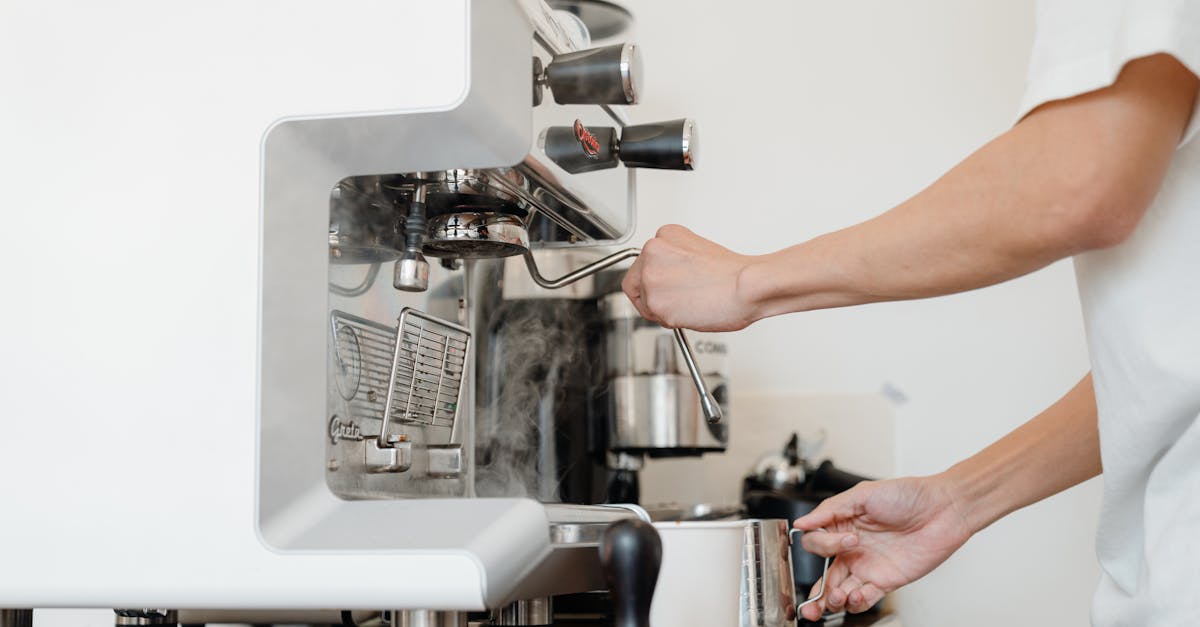The cost guide for starting your own café


“Starting a café is not just brewing coffee and serving pastries; it’s weaving together dreams, passion and hard work into a place where every cup is served with a story and every customer leaves with a smile.”
Do you dream of starting a café?
How often have you sat there with your latte and daydreamed about opening your own little corner of warmth and community? Maybe it’s time to turn your café dream into a reality! The first step is to be clear about what is required. Beyond the friendly atmosphere and the smell of freshly brewed coffee, there are number-crunching calculations and financial planning. Starting a café is a nice mix of passion and hard-boiled money – so get ready to dive into the numbers jungle and build your café on a solid foundation.
What does it cost to start a café?
The cost of opening your own café can vary enormously. It ranges from a small sum of 250,000 SEK for a rolling coffee kiosk, up to a staggering 3 million for an exclusive café with seating and the whole package. A coffee stand can be yours for less than €50,000. But why this big difference? Well, it depends on a plethora of factors: is it a central or out-of-the-way location you’re aiming for, do you want organic and locally grown products or classic accessories, or maybe you want a coffee machine that’s as high-tech as a spaceship? All these choices will affect the final bill.
From food truck to fine dining café
Depending on the type of café you dream of, the initial cost will change drastically. You can start a food truck for a relatively modest budget of SEK 250,000, while a fine-dining café with seating can easily reach over a million. A little tip: the size of the pub and the location itself are the big money-spinners – so think carefully before signing any lease.
The equipment that adds the finishing touch to your café
Coffee machines and water filtration – they may not sound like the most exciting investments, but they are so important! The equipment can make up to half of your start-up costs. Don’t forget that a perfect cup of coffee requires a top-notch espresso machine, and skimping on your own top-notch coffee grinder can turn your Arabica into a disappointment.
The business plan as your best friend
A business plan is like a best friend: it is there to support you, look after your best interests, and prevent total disaster. A solid business plan should be the first ingredient in your café start-up package – it should include everything from the budget for the premises to marketing. The good news? A good business plan is also your ticket to impressing the bank or investor.
Calculating the cost of goods
Coffee beans, milk and other necessities must not consume more than 40% of your sales forecasts. Are you planning to serve hipster coffee with avocado toast? Don’t forget to carefully calculate your purchases, so you don’t get swept away by an expensive trend!
Calculate costs down to the last penny
Job interviews, meetings with banks, and buying coffee beans by the truckload – include it all in your business plan. Keep in mind that rent should not be higher than 15% of your income, and that salaries should be included. And speaking of salaries, don’t forget to include your own.
Taxes and law – boring but important
Swedish taxes and laws are a myriad of paragraphs that can make the heart of even the sharpest coffee bean tremble. Employer contributions are around 35% of the wage cost. And then there are ‘other costs’ such as permits and insurance. Getting professional help in this particular area can be a really smart move.
Location, location, location
Have you found an idyllic venue in a cozy corner of the city? Perfect! But is it the right place for your target audience and are you aware of the competition? The location you choose is crucial to the success of your café. Think about your demographics, do you want to be the local hero cafe where students gather, or a haven for urban working hipsters? Each scenario has its ideal location, so spend time on this critical part.
Are you going to do everything yourself?
It’s you against the world – right? It doesn’t have to be quite so lonely. Investing in skilled staff and perhaps a mentor can be what takes your café from okay to great. Not to mention the benefits of having someone who knows accounting, or knows the legal ins and outs better than you do.
When expert help is worth every penny
Lawyers and architects may feel like a heavy upfront cost, but they can actually save you a mountain of money (and potential ulcers) in the long run. Those who steer you right through the permitting process and create an environment that attracts customers are ultimately worth every penny.
Future plans and sustainable success
When the cakes are baked and the espresso machine is buzzing with anticipation, it’s easy to think that the hardest part is over. The truth is that your café adventure is just beginning. How do you ensure sustainable success? Plan for the future, stay on top of trends, adapt to the market and always keep evolving.
And we can’t stress enough the importance of being consistent if you’ve found a concept that works. Fads and trends come and go, but a well thought-out and dynamic café can stand the test of time. Don’t forget that your ability to adapt to the market, no matter how the winds blow, is the key to long-term success and prosperity.
Final word on starting a café
Opening a café is not something that happens overnight. It requires patience, careful planning and a lot of attention to detail. Ultimately, it is the meeting of your dreams and your planning with reality that will determine whether your café flies high or falls flat. Either way, dream big but plan smart – good luck on your journey to becoming a café owner!

FAQ – The cost guide for starting your own café
How much can I expect to pay to start a small café?
The cost of setting up a small café can vary depending on several factors, but for traditional cafés with seating, costs often start at around SEK 800 000. However, remember that the location, the quality of the equipment and the scale of your business can significantly affect this figure.
What are the main expenses when opening a café?
The biggest expenses are usually the rent of the premises, which should be below 15% of your sales projections, and the cost of equipment, which can represent over 50% of your total budget. Cost of goods, staff and professional services such as lawyers and advisors are also important to budget for.
Is it important to have a business plan when starting a café?
Absolutely, a good business plan is crucial to the success of your café. It should include details of the budget for premises, furnishings, advertising, staff, equipment and other overheads such as permits and insurance. A well thought-out business plan will also help you impress potential investors or lenders.
Can the location of my café really affect the success of my business?
Yes, the location of your café is critical. It’s important to choose a location that matches the demographics of your target audience and to keep an eye on competition in the area. Opening in the right location can have a big impact on your café’s popularity and financial success.
Is it worth investing in professional help such as legal advice and architectural services?
The investment in professional services, such as lawyers for legal advice and architects for the design of your café, may seem costly at first. But these experts can help you navigate through the red tape, save you money in the long run and ensure your café is attractive to customers, making them a valuable part of your investment.

Photo by Marta Dzedyshko on Pexels
Photo by Porapak Apichodilok on Pexels
Photo by Quang Nguyen Vinh on Pexels
Continue reading
-

Pregnant and decaffeinated: safe for you and the baby?
“Decaf during pregnancy: A safe guide for expectant mothers” Decaffeination during pregnancy is an important issue for many. Pregnancy affects the body’s ability to break…
-

Coffee and health: anti-inflammatory or villain?
**Coffee and Inflammation: A Complex Relationship** Coffee is one of the world’s most widely consumed beverages and contains antioxidants that can reduce inflammation and protect…
-

Coffee and weight – are you getting the balance right?
Coffee and weight – Find your edge without tipping the scales Coffee and weight is a hot topic in health. Black coffee, with its low…
-

The truth about decaf – is it really good?
The truth about decaffeinated coffee: Is decaffeinated coffee good for you? Decaffeinated coffee is a healthy option for those who want to avoid the negative…
-

Coffee acidity: health and taste perception
The acidity of the coffee is influenced by its pH value, which is between 4.85 and 5.10. Is coffee sour? Yes, and this is due…
-

Pre-exercise coffee – does performance increase with each cup?
Drinking coffee before exercise can improve both strength and endurance, thanks to the stimulating effects of caffeine on the central nervous system. For best results,…
-

Coffee and antioxidants: your healthy cup?
**Coffee and antioxidants: a healthy cup Coffee is one of the major sources of antioxidants in Western diets, which can help reduce the risk of…
-

Turmeric in coffee – a health boost in your cup
Turmeric in coffee has become a popular trend among health enthusiasts thanks to its anti-inflammatory and antioxidant properties. Adding turmeric to your coffee can improve…
-

Roast for body in the coffee
Body in coffee refers to the fullness and mouthfeel of the coffee. It is influenced by brewing methods such as French press and espresso, as…
-

The role of coffee in the quest for a longer life
Coffee is a popular morning ritual that not only increases alertness but also contributes to a longer life. Studies show that coffee, rich in antioxidants,…
-

Coffee and health: upgrading your coffee with superfoods
**Coffee and Health: Upgrade your coffee with superfoods** Give your coffee a health boost by adding superfoods such as cinnamon, ginger, mushrooms, turmeric, maca and…
-

Is coffee dehydrating or hydrating?
**Is coffee dehydrating or hydrating? Coffee is one of the world’s most loved drinks, but is it dehydrating? Research shows that moderate coffee consumption (1-2…
-

Enjoy and feel better: 9 unexpected benefits of coffee
**Your health in a coffee cup: Benefits of coffee** Coffee, a global favorite beverage, offers many health benefits that are often overlooked. In addition to…
-

Taste guide: Detecting roasting defects in your coffee cup
Detect roasting defects in the coffee cup and improve the taste experience of the coffee. Learn to identify common defects such as underdevelopment, baked taste,…
-

The home roaster’s guide to the right green coffee
Discover the adventure of green coffee and learn how to roast at home with our comprehensive guide to buying the right green coffee. Understand the…
-

All about how coffee is harvested
A journey through the coffee harvest describes in detail how coffee is harvested, from ripe coffee berries to finished beverage. Harvesting is mainly done by…
-

Exploring third wave coffee
**From the origin of the bean to your coffee barrel: A journey with third wave coffee** The coffee industry is a global giant, covering everything…
-

Coffee with balance: decaf vs low-caf
Low-caf coffee offers a balanced solution for coffee lovers who want to avoid the negative effects of caffeine. While traditional coffee and decaf often have…
-

How to turn coffee beans into decaffeinated coffee
### How to turn coffee beans into decaffeinated coffee Decaffeinated coffee, or decaffeinated coffee, removes the majority of caffeine from the beans to avoid negative…
-

Refine your brewing art by blooming your pour over coffee
Optimize the taste of your coffee with the art of bloom pour over coffee. Flowering of coffee is a crucial step to release gases and…
-

Create a unique brand for your café – here’s how!
Creating a strong café brand means defining your ‘why’ and mission to stand out from the crowd. By integrating core values like sustainability and community…
-

Should I use different coffee filters for different roasting profiles?
Discover how coffee filters affect the taste experience! Using the right coffee filter is essential to bring out the unique flavors of each coffee variety.…
-

How to make an espresso martini at home
“Create the perfect espresso martini at home with simple ingredients like vodka, coffee liqueur, fresh espresso and simple syrup. Rooted in 1980s London, this classic…
-

Lungo: when espresso takes a bigger leap
Lungo is a coffee drink that is gaining ground in Sweden, a milder espresso with extended brewing time that provides a larger amount of coffee…
-

The charms of the Perculator – a coffee experience like no other
Experience the rich flavor of percolator coffee, a traditional brewing method that offers depth and complexity. The perculator is quick and easy, perfect for busy…
-

Do you know the coffee berry?
Discover the importance of coffee berries in the coffee flavor journey, from lush plantations to your cup. Learn about the different layers of the berry,…
-

Headache from coffee: 6 unexpected reasons
Discover the causes of coffee headaches, from caffeine withdrawal to overdose and caffeine allergy. Coffee can cause both concentration and headaches, with withdrawal symptoms and…
-

Arabica coffee beans – a world of flavor variations
Arabica coffee beans offer coffee lovers a wealth of flavors thanks to its diverse varieties such as Bourbon, Typica and Geisha. These beans, which dominate…
-

Flavor development during roasting: the magic of the griddle effect
The grinding effect is central to the transformation of the coffee bean during roasting, creating hundreds of aroma compounds that make the coffee rich and…
-

Top tips for making French press coffee
Discover the art of brewing perfect French press coffee by selecting fresh coffee beans, achieving the ideal grind and balancing the coffee-water ratio for a…
-

Attracting more café guests – your guide to a vibrant meeting place
Welcome all café guests to a place where the details create a unique atmosphere. To successfully attract visitors, cafés should strengthen their digital presence and…
-

How to use different cups for different coffees
Discover how cups for coffee can change your taste experience. Research shows that the shape of the cup affects the aroma, sweetness and acidity of…
-

Coffee giant Brazil: a deep dive into the kaleidoscope of culture
Brazil is not only known for its culture of music and carnival, but it is also a global coffee giant whose coffee traditions go back…
-

Clean your coffee grinder like a pro – for flavor
Regular cleaning of the coffee grinder is essential for an optimal coffee experience. An unclean grinder negatively affects the taste through the accumulation of old…
-

Flat white – more than just milk and coffee
More than just milk and coffee, flat white is a global coffee experience that originated in Australia and New Zealand, and has captured the hearts…
-

Ristretto – Italy’s flavorful little guy
In Italy, ristretto is more than just coffee; it is a concentrated pleasure and part of the culture. This intense espresso variant is characterized by…
-

Storing coffee beans properly: guide and tips
Learn how to store coffee beans optimally to preserve flavor and freshness. Avoid air, moisture, heat and light with airtight, dark containers and the right…
-

Growing coffee in Uganda: one bean’s journey to perfection
Uganda, a leading coffee producer, offers a wealth of flavors from the nutrient-rich red soil. The country is known for its Arabica and Robusta coffees,…
-

Mexico’s forgotten beans: a journey into the coffee kingdom
Discover Mexico’s hidden coffee gems, where small-scale farms with big hearts grow organically and responsibly, contributing to a rich flavor profile ranging from fruity notes…
-

Cortado – more than just coffee and milk
Experience cortado, a Spanish specialty coffee that combines strong espresso with silky milk in a perfect balance. With the right espresso beans and gently frothed…
